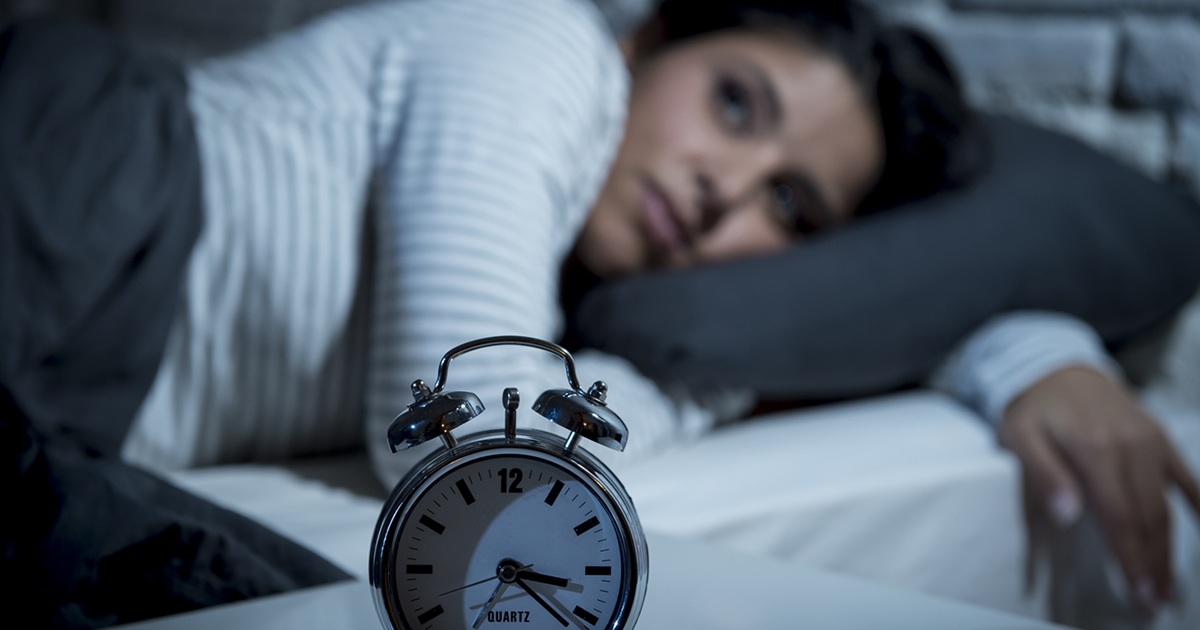The Woolcock Institute of Medical Research

The 3am wake-up
Ever found yourself lying in bed staring at the ceiling at 3am, wondering why you can’t get back to sleep? You’re not alone. While it can feel like insomnia, early-morning awakening is often the result of your body following its natural circadian rhythms – shifting gears as core temperature and hormones prepare you for the day ahead.
The autonomic nervous system (ANS) regulates things like your heart rate, blood pressure, breathing, digestion and body temperature. It has two main branches – the sympathetic “fight or flight” and the parasympathetic “rest and digest”. During the night the parasympathetic branch dominates, supporting deep, restorative sleep. Between 3am and 5am though, the ANS shifts gears so that the body transitions gradually into wakefulness. This function helps to avoid that jarring, groggy and underpowered feeling you get when woken suddenly. However, that subtle switch can also create micro-awakenings, so even small disturbances – like light, noise or stress – can tip you fully into wakefulness, and this is normal.
Two of the body’s most important circadian hormones – melatonin and cortisol – are also shifting gears. Melatonin’s primary role is to trigger the drop in body temperature which signals the body that it’s time to sleep, and reaches its peak in the middle of the night. Cortisol, a stress hormone that primes the body for action, alertness and energy, does the opposite starting to rise at 3am to 5am and building towards its morning peak.
Everyone cycles through different stages of sleep across the night – from deep slow-wave sleep to light sleep, through REM (dream sleep) and brief moments of waking (even if you don’t remember them). These stages repeat in roughly 90-minute cycles, with most people moving through four to six cycles in a typical night. It is important to know that we spend most of the night (45-55%) in relatively light sleep called NONREM 2 (N2). In the first half, deep sleep dominates as the body temperature falls. During the second half, REM sleep – which is similar to wakefulness is more dominant along with N2 and very light sleep called N1 or transitional sleep.
Want to stay up to date with our research on sleep and respiratory conditions?
Sign up to our quarterly newsletter
Your lowest core body temperature is usually 2 hours before your typical waking time. A consistent waking time helps regulates our circadian rhythm and body temperature on a daily basis by adjusting the sleep wake cycle to match the environment.
Sleep difficulties can be amplified for women in perimenopause and menopause because declining estrogen and progesterone influence thermoregulation and sleep architecture. With a narrower margin for maintaining stable body temperature, this normal core temperature drop can be more disruptive. Combined with vasomotor symptoms like hot flushes and night sweats as well as an overall reduction in deep sleep at this stage of life, women become more vulnerable to waking during lighter sleep.
This can also be a particularly stressful time for women, many of whom are balancing the needs of adult children, ageing parents, work and other life pressures. The added mental and emotional load can rush to fill the “void” of wakefulness which can exacerbate insomnia symptoms.
Early morning, however, is probably the worst time to worry about life’s challenges. The pre-dawn hours are the circadian low point for human performance – when alertness, reaction time and mood are programmed to be at their lowest. If you wake up during this window, but understand that early morning awakenings are a normal response, this can help you doze off again.
Practical strategies can help you to sleep better - like keeping your bedroom cool (but not cold) to support thermoregulation and avoiding alcohol and stimulants that fragment sleep. When you wake between 2-3am this is normal and at this time, you will have already experienced most of your deep sleep for the night. Understanding normal sleep patterns and learning to “let go” of the concerns/worries/anxiety about sleep and life at this time of the morning is the first step in this process.
The Woolcock Institute of Medical Research is collaborating with The Netherlands Institute for Neuroscience. Together we have developed an online cognitive behavioural and circadian therapy for insomnia (CBCTi) which is aimed at helping individuals with insomnia and anxiety. The therapy is now being tested in the Restless Study. You can find our more or register your interest in this study here.










